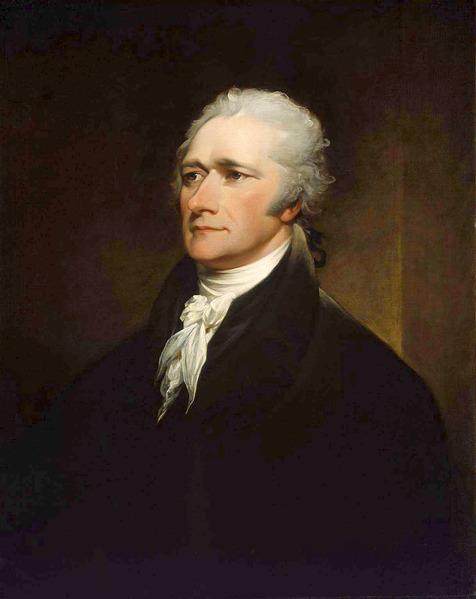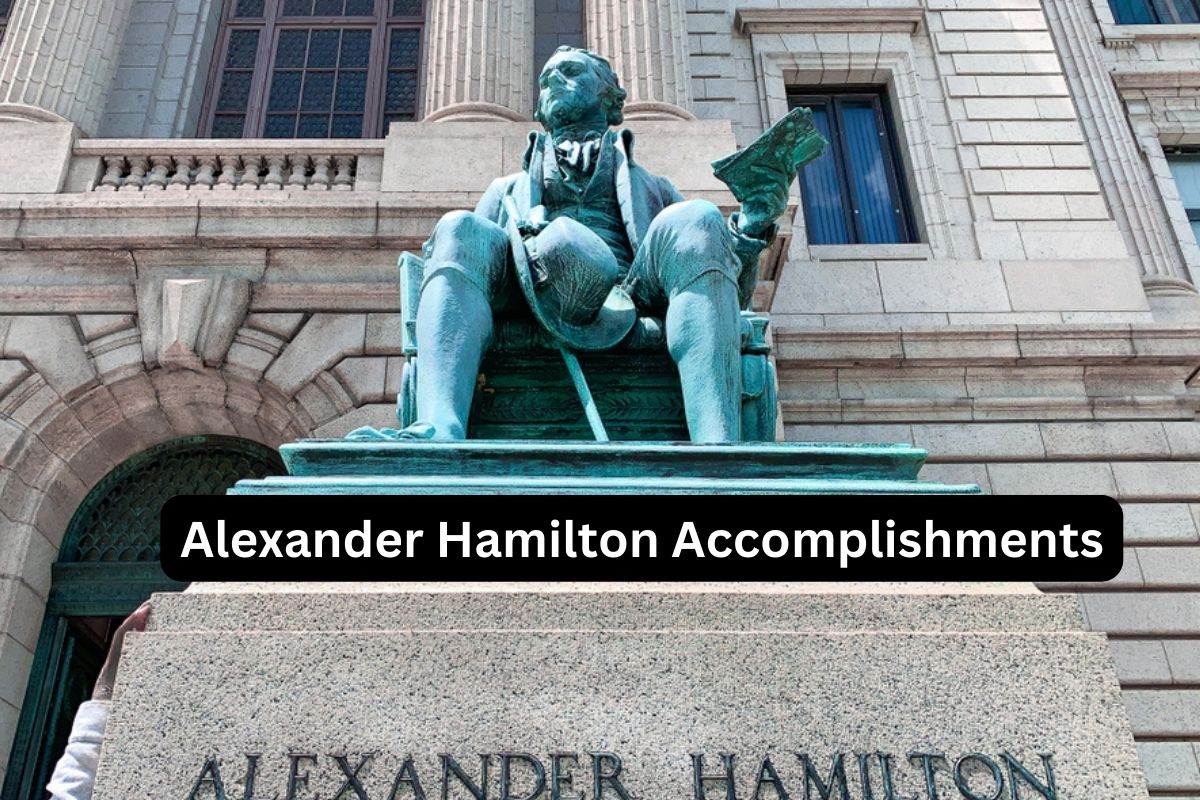Alexander Hamilton (1755 or 1757–1804) was a prominent figure in American history and one of the Founding Fathers of the United States. Born in the British West Indies, he immigrated to the American colonies as a teenager and quickly became involved in the revolutionary movement.
Hamilton played a vital role in the American Revolutionary War, serving as a lieutenant colonel and aide-de-camp to General George Washington.
As the first Secretary of the Treasury, he established the American financial system and advocated for industrialization. Hamilton co-authored the Federalist Papers and founded the New York Post. He tragically died in a duel with Aaron Burr.
Despite his untimely death, Hamilton’s contributions to the United States continue to be celebrated and his ideas remain influential in shaping the nation’s political, economic, and legal systems.
Accomplishments of Alexander Hamilton
1. Founding Father
Alexander Hamilton is regarded as one of the Founding Fathers of the United States. Alongside other influential figures such as George Washington, Thomas Jefferson, and James Madison, Hamilton played a pivotal role in the establishment of the nation.
Also Read: Facts About Alexander Hamilton
As a Founding Father, he participated in the shaping of American ideals and institutions, contributing to the foundation of the United States.

2. Drafted the U.S. Constitution
Hamilton made significant contributions to the drafting and ratification of the United States Constitution. As a delegate to the Constitutional Convention in 1787, Hamilton advocated for a strong central government and a system of checks and balances.
He played a key role in shaping the structure of the government, particularly in the debates surrounding the division of powers between the federal and state governments.
Additionally, Hamilton co-authored the Federalist Papers, a collection of influential essays that defended and promoted the ratification of the Constitution.
3. Secretary of the Treasury
One of Alexander Hamilton’s most notable accomplishments was his appointment as the first Secretary of the Treasury under President George Washington.
Serving from 1789 to 1795, Hamilton was responsible for establishing the economic foundation of the young nation. He developed a comprehensive financial plan to address the country’s debts, establish a stable monetary system, and promote economic growth.
Also Read: Timeline of Alexander Hamilton
Hamilton’s financial policies included the creation of a national bank, the assumption of state debts by the federal government, and the implementation of tariffs and taxes to generate revenue.
His vision and initiatives were instrumental in laying the groundwork for the modern American financial system and shaping the economic trajectory of the United States.
4. Established the First Bank of the United States
As the Secretary of the Treasury, Alexander Hamilton was a strong advocate for the establishment of a national bank. In 1791, the First Bank of the United States was chartered, with Hamilton playing a crucial role in its creation.
The bank served as a central financial institution, facilitating economic stability, regulating the money supply, and promoting commerce. It provided loans to the government and private individuals, issued currency, and helped establish a foundation for a sound and reliable banking system in the United States.

5. Advocated for industrial and economic development
Hamilton recognized the importance of diversifying the American economy beyond agriculture and promoting industrial development. He championed policies that aimed to protect and nurture domestic industries, such as manufacturing and trade.
Hamilton believed that a strong industrial base would contribute to the nation’s economic growth and self-sufficiency. To achieve this, he proposed the implementation of protective tariffs to shield domestic industries from foreign competition and encourage their growth.
These policies laid the groundwork for the industrialization and economic expansion that would follow in the years to come.
6. Implemented a revenue system through tariffs and taxes
As the Secretary of the Treasury, Hamilton implemented a robust revenue system to generate funds for the federal government. He recognized the importance of financial stability and sought to address the massive debts accumulated during and after the Revolutionary War.
Hamilton’s financial plan involved the imposition of tariffs on imported goods to generate revenue and protect domestic industries.
Additionally, he advocated for the levying of excise taxes on certain products, including whiskey. These measures provided a reliable source of income for the government, helping to pay off the nation’s debts, establish creditworthiness, and ensure the stability of the new republic.
Hamilton’s revenue system was a crucial component of his broader economic vision for the United States.
7. Played a key role in establishing the United States Coast Guard
Alexander Hamilton recognized the importance of maritime security and the need to protect American coastal waters. In 1790, as Secretary of the Treasury, he proposed and successfully advocated for the creation of the United States Revenue Cutter Service.
This precursor to the modern United States Coast Guard was responsible for enforcing trade laws, preventing smuggling, and safeguarding the nation’s coastlines.
Hamilton’s efforts in establishing this service laid the foundation for the future development of the Coast Guard as a vital maritime law enforcement and search and rescue organization.
8. Founder of the New York Post
In 1801, Alexander Hamilton founded the New York Evening Post, which is now known as the New York Post. The newspaper was initially established to promote Hamilton’s Federalist political views and provide a platform for his ideas.
The New York Post has since become one of the oldest and most influential newspapers in the United States, covering a wide range of topics, including politics, business, entertainment, and culture.
9. Served in the Continental Army during the Revolutionary War
Prior to his political career, Alexander Hamilton played an active role in the American Revolutionary War. He served as a lieutenant colonel and aide-de-camp to General George Washington, demonstrating his leadership skills and strategic acumen.
Hamilton participated in several key battles, including the pivotal Battle of Yorktown in 1781, where British forces were defeated, leading to the eventual independence of the United States.
10. Successful legal career as a lawyer
Alongside his political endeavors, Alexander Hamilton had a successful legal career as a lawyer. After studying law, he was admitted to the New York Bar in 1782 and practiced law in New York City.
Hamilton represented clients in important cases and contributed to the development of American legal jurisprudence. His legal expertise and experience in the courtroom further enhanced his capabilities as a statesman and policymaker.
